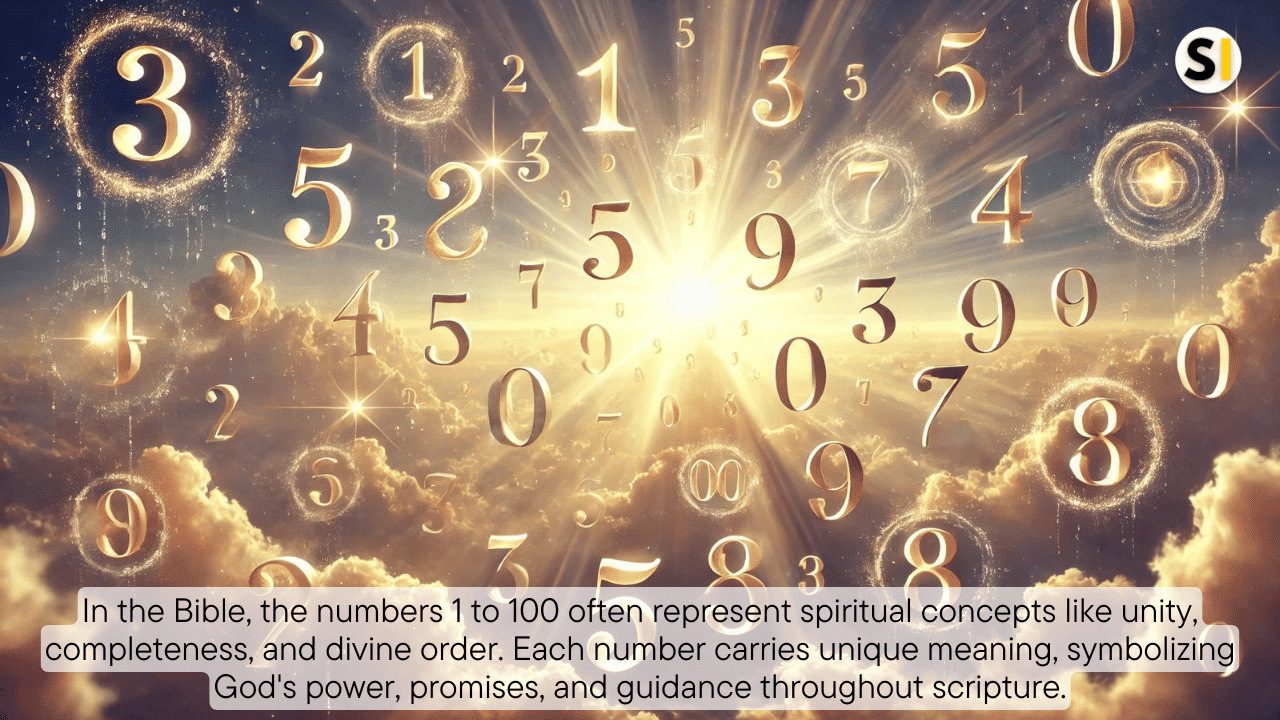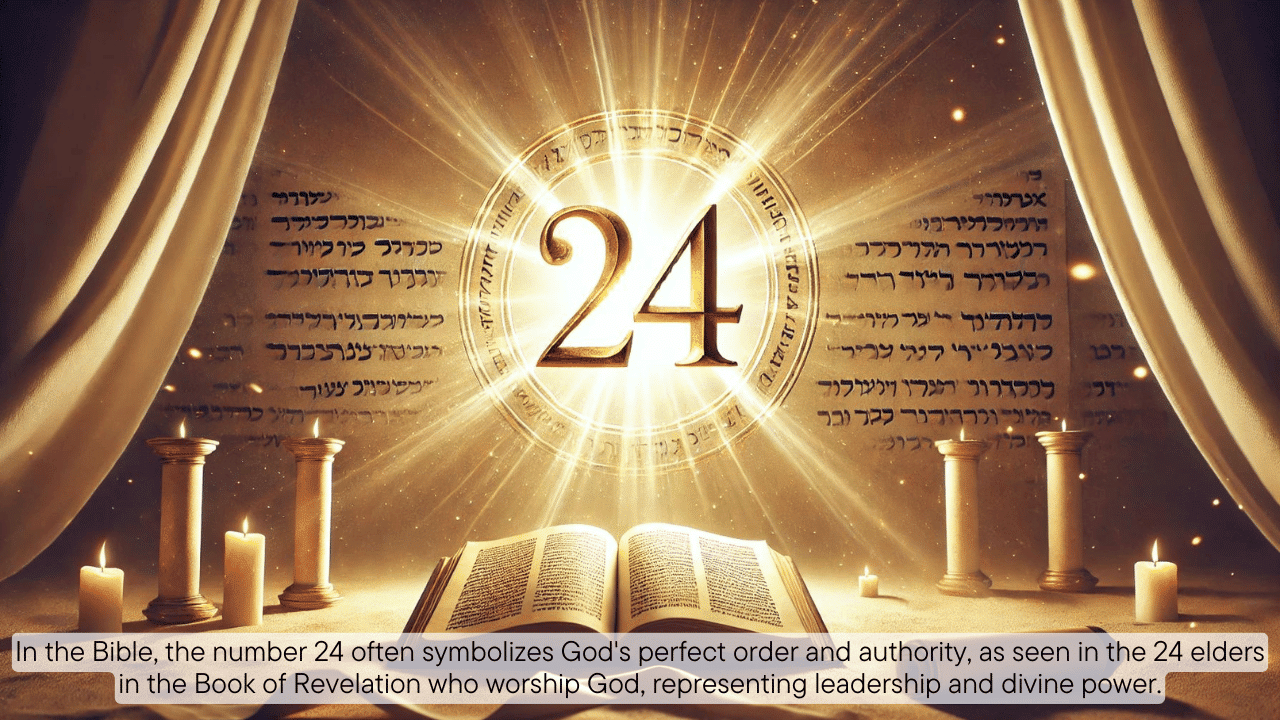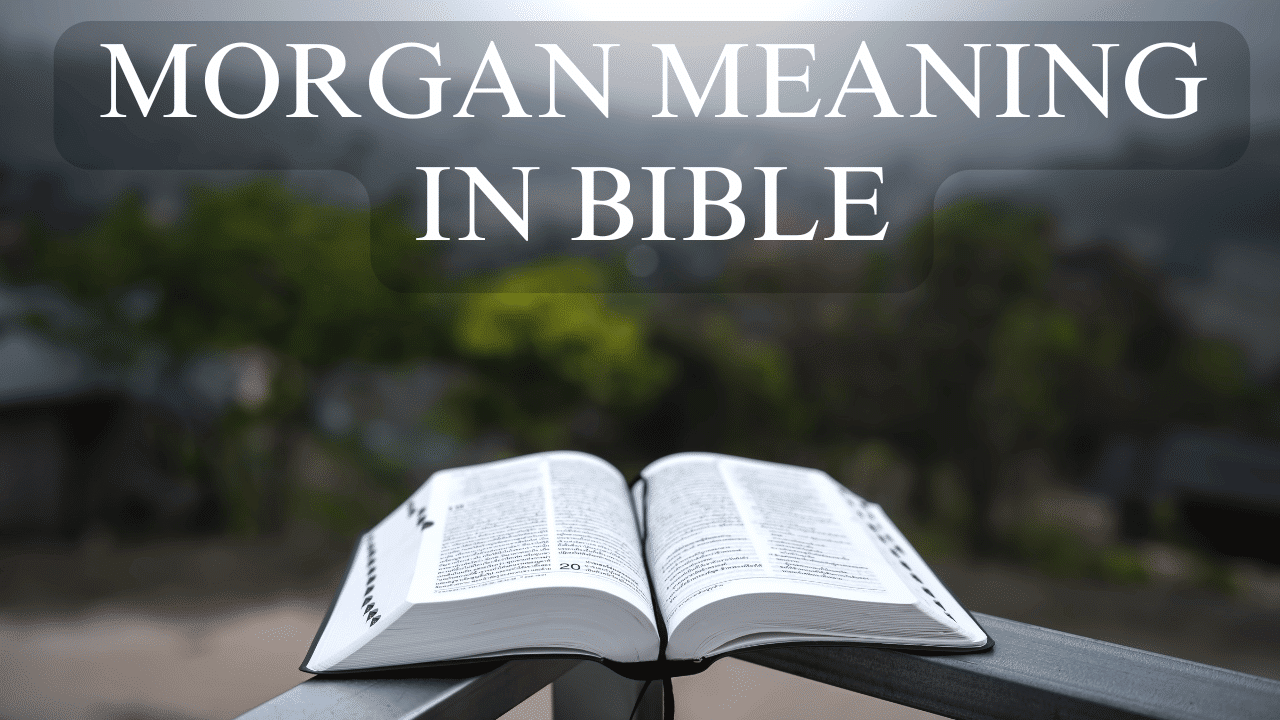In the Bible, numbers from 1 to 100 hold deep spiritual meanings, with each number symbolizing important aspects of faith. For example, the number 1 represents God’s unity and sovereignty, while 7 stands for completeness and perfection.
Numbers like 12 symbolize divine governance, and 40 signifies periods of testing or transformation. These numbers help convey spiritual truths, showing God’s divine order and purpose throughout biblical stories. Exploring the meaning behind these numbers can deepen your understanding of the Bible’s messages.
The Bible is filled with symbolism, and numbers hold a particularly significant place in its teachings. Each number carries a spiritual meaning, offering insights into divine wisdom, spiritual truths, and the nature of God. In this article, we will explore the spiritual significance of the numbers 1-100 in the Bible, revealing their deeper meaning and the lessons they impart.
Chuck Missler
Theologian
Numbers in the Bible are not just mathematical; they reveal spiritual truths and divine mysteries that guide our faith.
The Power of Numbers in Biblical Teachings
Numbers in the Bible are not mere mathematical figures; they often symbolize greater spiritual truths. From Genesis to Revelation, the Bible uses numbers to communicate divine messages, offering a glimpse into God’s plans and the spiritual world. Let’s dive into the meaning of numbers from 1 to 100 and uncover the wisdom behind them.
Spiritual Meaning of Numbers 1-100 in the Bible
Number 1 – Unity and God’s Supremacy
The number 1 represents unity and the oneness of God. It signifies the belief in one God and His supremacy over all creation. In Deuteronomy 6:4, we read, “Hear, O Israel: The Lord our God, the Lord is one.” This verse emphasizes the singular nature of God.
Number 2 – Witness and Testimony
The number 2 signifies witness and confirmation. The Bible states that truth is established by two witnesses. For instance, Jesus sent out His disciples in pairs, symbolizing the importance of two as a witness. In Matthew 18:16, it says, “Every matter may be established by the testimony of two or three witnesses.”
Number 3 – Divine Completeness and the Trinity
Three holds great spiritual importance, representing divine completeness and the Trinity (Father, Son, and Holy Spirit). The number appears throughout the Bible, such as in Matthew 12:40, where Jesus was in the heart of the earth for three days and three nights.
Number 47 in the Bible: Spiritual Insight and Meaning
In the Bible, 47 doesn’t have a direct or specific meaning like some other numbers,…
Number 4 – Creation and the World
The number 4 is associated with creation and the earth. There are four cardinal directions (north, south, east, and west), and the number often represents God’s creative works. In Revelation 7:1, angels are seen standing at the four corners of the earth.
Number 5 – Grace and God’s Goodness
The number 5 symbolizes God’s grace, goodness, and favor toward humanity. It is also linked to the five books of the Law (Genesis, Exodus, Leviticus, Numbers, and Deuteronomy), often referred to as the Pentateuch.
Number 6 – Man and Imperfection
Six is the number of man, representing human weakness and imperfection. It is often seen as incomplete, as it falls short of seven, which symbolizes completeness. In Revelation 13:18, 666 is described as the number of the beast, symbolizing human sin and rebellion.
E.W. Bullinger
Theologian
Each number in scripture holds symbolic weight, offering insights into God’s design and His work in the universe.
Number 7 – Completion and Perfection
Seven is one of the most prominent numbers in the Bible, symbolizing spiritual perfection and completion. God created the world in six days and rested on the seventh, marking the completion of His work. The number seven is used throughout Scripture to represent divine order and fulfillment.
Number 8 – New Beginnings and Resurrection
The number 8 represents new beginnings and renewal. After the seven days of creation, the eighth day marks a new era. It also symbolizes Jesus’ resurrection, which took place on the first day of the week, a new beginning for humanity.
Number 9 – Fruit of the Spirit and Divine Completeness
Nine represents divine completeness and the fruits of the Spirit, as outlined in Galatians 5:22-23. The nine fruits include love, joy, peace, patience, kindness, goodness, faithfulness, gentleness, and self-control.
Number 10 – Law and Responsibility
The number 10 is associated with divine order, law, and responsibility. The Ten Commandments, given to Moses on Mount Sinai, form the foundation of biblical law and represent God’s covenant with His people.
Number 11 – Disorganization and Judgment
Eleven often symbolizes disorder, chaos, and judgment. It is seen as a number that lacks the completeness of twelve. In the Bible, the rebellion and sin of humanity are often associated with this number, leading to judgment.
What Does 9 Symbolize in the Bible? Deep Dive Inside
In the Bible, the number 9 symbolizes divine completeness or finality. It’s often seen as…
Number 12 – God’s Go vernment and Authority
The number 12 represents God’s perfect government and authority. There are twelve tribes of Israel, twelve apostles, and in Revelation 21:12, twelve gates in the New Jerusalem. It signifies God’s leadership and His divine rule.
13-20: Further Symbolism in the Bible
- 13 – Rebellion and Apostasy: Symbolizes rebellion against God, as seen in Genesis 14:4.
- 14 – Deliverance and Salvation: The number of generations from Abraham to David, David to the exile, and the exile to Christ.
- 15 – Rest: Symbolizes rest after deliverance, often linked with God’s grace.
- 16 – Love: The numerical value of the Hebrew word for love, “ahavah.”
- 17 – Victory and Spiritual Perfection: A number signifying victory in spiritual warfare.
- 18 – Bondage: Represents slavery or oppression, seen in the Bible’s 18-year periods of bondage.
- 19 – Faith: Symbolizes faith and God’s sovereignty over human lives.
- 20 – Redemption: Represents cycles of waiting and redemption.
21-30: Deeper Meanings
- 21 – Sin and Rebellion: Related to stubbornness and opposition to God’s will.
- 22 – Light and Truth: Represents light, often connected to God’s Word.
- 23 – Death: Associated with death and judgment in biblical context.
- 24 – Priesthood: The 24 elders in Revelation symbolize the priestly order.
- 25 – Grace Upon Grace: Symbolizes multiple instances of grace.
- 26 – The Name of God: The numerical value of God’s name in Hebrew (YHWH).
- 27 – Divine Revelation: Represents the revealing of God’s plans and purposes.
- 28 – Times and Seasons: Related to significant events and divine timing.
- 29 – Departure: Symbolizes leaving or transition.
- 30 – Dedication: Associated with maturity and dedication to God’s service.
David A. DeSilva
Theologian
The study of biblical numerology shows us how God uses numbers to communicate His eternal purpose.
31-50: Milestones in Spiritual Growth
- 31 – Offspring: Represents fruitful multiplication, linked to God’s promise.
- 32 – Covenant: Related to the covenant God made with Israel.
- 33 – Promise Fulfilled: The age of Jesus at His crucifixion, representing the fulfillment of God’s promises.
- 34 – Inheritance: Linked to receiving an inheritance from God.
- 35 – Hope: Symbolizes the hope of God’s people.
- 36 – Enemy Defeated: Represents overcoming spiritual enemies.
- 37 – Word of God: Symbolizes the power of God’s Word.
- 38 – Waiting Period: Often related to periods of waiting in the Bible.
- 39 – Mercy: Symbolizes God’s mercy and forgiveness.
- 40 – Testing and Trials: Represents periods of testing, such as the 40 years in the wilderness.
51-100: Profound Spiritual Insights
- 50 – Jubilee and Freedom: Represents freedom and restoration in the Bible’s Year of Jubilee.
- 70 – Perfect Spiritual Order: Symbolizes complete spiritual order and judgment.
- 100 – Fullness and Completeness: Represents ultimate spiritual completeness, as seen in the parable of the sower’s hundredfold harvest.
Biblical Meaning of 29: What You Need to Know
In the Bible, 29 often symbolizes the completion of trials and the start of a…
FAQs About Numbers 1-100 in the Bible
Why are numbers important in the Bible?
Numbers in the Bible hold symbolic meaning and often convey deeper spiritual truths. They help communicate God’s divine plan, order, and authority.
What does the number 7 symbolize in the Bible?
The number 7 symbolizes completion and spiritual perfection. It is closely associated with God’s work in creation and divine order.
How does the number 40 represent trials?
The number 40 often symbolizes periods of testing, such as the Israelites’ 40 years in the wilderness and Jesus’ 40 days of fasting.
What is the significance of the number 12?
The number 12 signifies God’s perfect government and divine authority. It represents leadership and governance in the Bible.
How does the number 8 represent new beginnings?
Eight symbolizes renewal and new beginnings, most notably represented by Jesus’ resurrection, which occurred on the first day of the new week.
Conclusion
The numbers 1-100 in the Bible reveal profound spiritual meanings that extend beyond their literal value. Each number provides insight into God’s nature, His relationship with humanity, and the spiritual journey of believers. By understanding these numbers, we can gain deeper insights into the divine order and God’s eternal plan for creation.
























